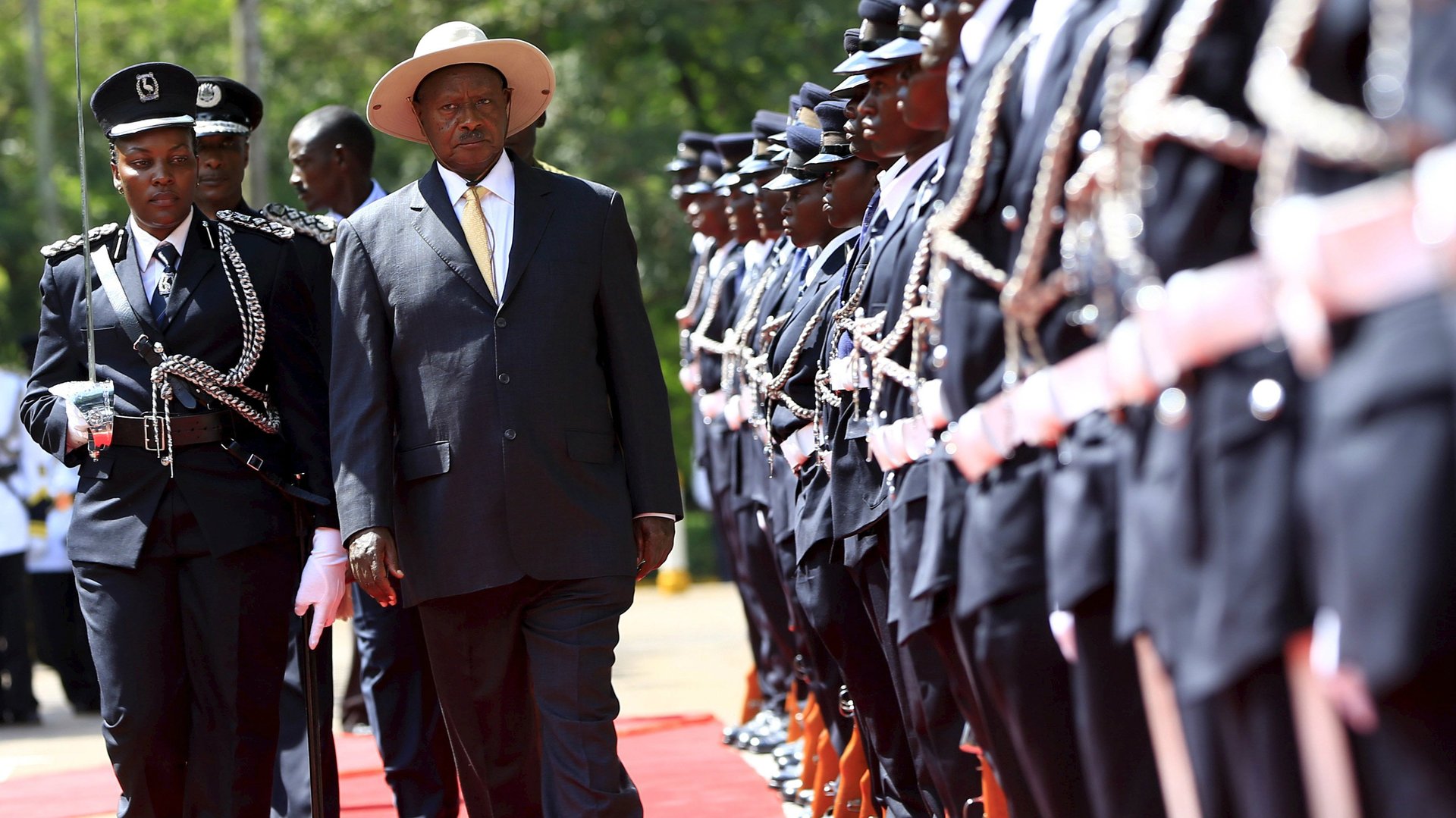Uganda has launched a total social media blackout for the second time in three months
Ugandan president Yoweri Museveni was sworn in today (May 12) for his fifth term amid military jets, congratulatory African leaders, and his coterie of supporters. One thing that wasn’t present was the flow of comments and photos on social media during the inauguration.


Ugandan president Yoweri Museveni was sworn in today (May 12) for his fifth term amid military jets, congratulatory African leaders, and his coterie of supporters. One thing that wasn’t present was the flow of comments and photos on social media during the inauguration.
Starting yesterday (May 11), the country’s communication regulator ordered internet service providers to block access to Twitter, Facebook, and WhatsApp, according to journalists and digital watchdog nonprofits in the country. This is the second time in less than three months that the government has censored the platforms.
Much of the debate and discontent over Museveni’s continued hold on power—he’s already been in office for three decades—is taking place on social media. During the election in February, authorities blocked all access to social media for three days, citing security concerns. (Ugandans still got around the ban by downloading VPN software.)
“The government knows that Museveni was not rightly elected by the majority of citizens… thus, it fears that citizens might organize online and cause an upraising [like] the Arab-spring,” said Jeff Wokulira Ssebaggala, chief executive of Unwanted Witness, a Ugandan nonprofit that advocates for freedom of speech.
The focus on social platforms marks a new dimension to the Ugandan government’s restrictive attempts to manage the media. Earlier this month, authorities banned media outlets from reporting live on any activities by the opposition party, the Forum for Democracy Change, led by Dr. Kizza Besigye. More than a dozen journalists have been arrested or beaten this year.
Social media, which is how many Ugandans receive and disseminate news and opinions, could be a much more powerful tool for the government to control the national narrative. There have been early signs of this: In Uganda’s 2011 election, which followed the Arab Spring, the government banned the words “Egypt” “dictator,” “teargas,” and “people power” in text messages.